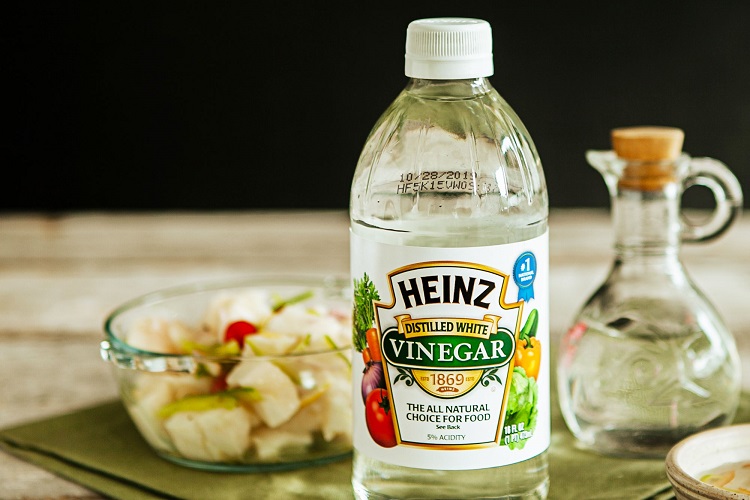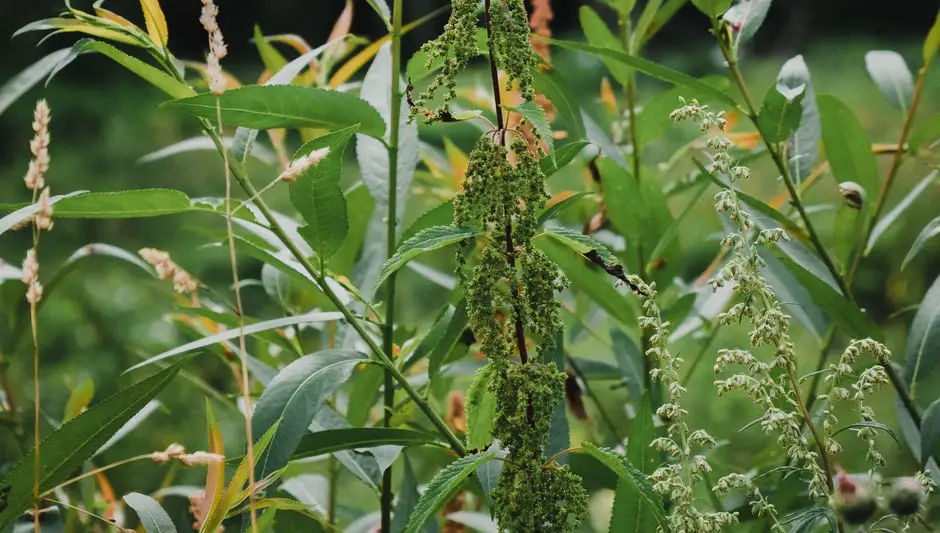Does White Vinegar Kill Grass? A Gardener’s Guide
Does White Vinegar Kill Grass? A Gardener’s Guide

Executive Summary

White vinegar, a common household item, is often touted as a natural weed killer. But does it really kill grass? The answer, as with most things in gardening, is nuanced. While vinegar can kill grass, its effectiveness depends on several factors, including the concentration of acetic acid, the type of grass, the application method, and environmental conditions. This comprehensive guide will explore the intricacies of using white vinegar to control unwanted grass, offering practical advice and helping you make informed decisions for your lawn care. We’ll delve into the science behind its effects, explore the potential risks, and provide you with the knowledge to use it safely and effectively—or to decide it’s not the right tool for the job.

Introduction
Many gardeners seek natural alternatives to harsh chemical herbicides. White vinegar, with its acetic acid content, seems like a promising option. However, simply pouring vinegar on grass won’t guarantee eradication. Understanding the mechanics of how vinegar interacts with grass, along with its limitations, is crucial for successful and responsible application. This guide will equip you with the knowledge to make informed decisions about using white vinegar in your garden, helping you achieve your lawn care goals without resorting to potentially harmful chemicals.
Frequently Asked Questions
-
Q: Will white vinegar kill all types of grass? A: No. Vinegar’s effectiveness varies depending on the type of grass and its current health. Some grasses are more resistant than others.
-
Q: How strong does the vinegar need to be to kill grass? A: Household white vinegar (typically 5% acetic acid) might scorch grass, but stronger concentrations (around 20% acetic acid) are needed for more reliable killing. However, using such strong concentrations requires extreme caution.
-
Q: Is white vinegar harmful to the environment? A: While generally considered less harmful than synthetic herbicides, using excessive amounts of vinegar can still impact soil health and beneficial organisms. Always use it responsibly and sparingly.
The Science Behind Vinegar’s Effect on Grass
Vinegar’s ability to kill grass stems from its acetic acid content. Acetic acid disrupts the cellular processes of plants, essentially dehydrating them and causing cell death. The higher the concentration of acetic acid, the more potent the effect. However, grass can be surprisingly resilient, and many factors influence the outcome.
- Concentration Matters: Household vinegar (5% acetic acid) might burn grass leaves but is unlikely to kill the entire plant. Stronger solutions are needed for effective killing, but handle with care.
- Application Method: Direct spraying is more effective than simply pouring vinegar over the grass. Ensure thorough coverage for best results.
- Environmental Factors: Sunny, dry conditions amplify vinegar’s effectiveness, while humid or rainy conditions can dilute it and reduce its impact.
- Grass Type: Different grasses exhibit varying levels of tolerance to acetic acid. Some grasses are naturally more resistant.
- Soil Type: Soil composition can influence vinegar’s efficacy. Sandy soils may allow quicker penetration and increased effectiveness.
- Plant Health: Stressed plants are more vulnerable to vinegar’s effects.
Choosing the Right Vinegar
The concentration of acetic acid is paramount. Household vinegar is generally too weak to reliably kill grass. However, stronger, horticultural-grade vinegars are available; these can be quite effective but must be handled carefully.
- Household Vinegar (5% acetic acid): Useful for spot treatment or minor weed control, but unlikely to kill established grass.
- Horticultural Vinegar (20% acetic acid): Significantly more potent, able to kill grass effectively, but requires careful application and safety precautions.
- Diluting Vinegar: It is often recommended to dilute stronger vinegars, even horticultural-grade ones. Experimentation is crucial to find the sweet spot for your specific application.
- Testing in an Inconspicuous Area: Before widespread application, test your chosen vinegar solution on a small, hidden area of your lawn to gauge its effect on your grass type.
- Application Timing: Apply vinegar on a sunny, dry day for maximum effectiveness. The sun’s heat will increase the impact.
- Protective Gear: Always wear appropriate protective gear, including gloves, eyewear, and long sleeves, when working with any concentration of vinegar, especially stronger solutions.
Safe Application Techniques
Even with horticultural vinegar, improper application can damage desirable plants or harm the environment. Careful application is key.
- Targeted Application: Focus on the specific areas where you want to kill grass. Avoid spraying onto surrounding plants.
- Avoiding Overspray: Use a nozzle that produces a fine mist, and aim carefully to minimize drift.
- Weather Conditions: Avoid applying on windy days to prevent drifting onto unintended areas.
- Post-Application: After application, water the area lightly to help the vinegar penetrate the soil.
- Frequency of Application: Multiple applications may be required, especially for established grass. Monitor results and reapply as needed.
- Soil Monitoring: Observe the soil for any changes in pH or texture after repeated vinegar application.
Potential Risks and Precautions
While vinegar is considered a natural alternative, it’s still important to be aware of potential risks.
- Soil Acidification: Overuse can lead to soil acidification, affecting soil health and nutrient availability.
- Harm to Desirable Plants: Spray drift can harm nearby plants and flowers.
- Skin and Eye Irritation: Vinegar can irritate skin and eyes. Always wear protective gear.
- Environmental Impact: While generally less harmful than synthetic herbicides, it can still have some negative effects on the environment. Use responsibly.
- Effectiveness Limitations: Vinegar is not a miracle cure for all grass problems; other methods may be necessary in some cases.
- Incorrect Application: Improper application could damage desirable plants or have little to no effect on the target area.
Alternatives to Vinegar
If vinegar doesn’t suit your needs, several other effective and environmentally responsible methods for grass control exist.
- Hand Pulling: Effective for small areas and isolated weeds.
- Boiling Water: Kills weeds effectively, but requires careful application.
- Solarization: Covering the area with plastic to heat the soil and kill weeds.
- Organic Herbicides: Various organic herbicides are available, offering a less harsh alternative to synthetic chemicals.
- Mulching: Effective for suppressing weed growth.
Conclusion
White vinegar can be a useful tool for controlling unwanted grass, but it’s crucial to understand its limitations and potential risks. Household vinegar is generally ineffective for killing grass, while horticultural vinegar requires careful application and safety precautions. Before using any vinegar solution, always test it on a small, inconspicuous area and consider alternative, equally eco-friendly methods such as hand pulling, mulching or utilizing organic herbicides. Responsible use ensures effective results without harming desirable plants, soil health, or the environment. Remember, patience and a thoughtful approach are essential for successful lawn care, regardless of your chosen method.
Keyword Tags:
White Vinegar, Kill Grass, Weed Control, Natural Herbicide, Lawn Care



